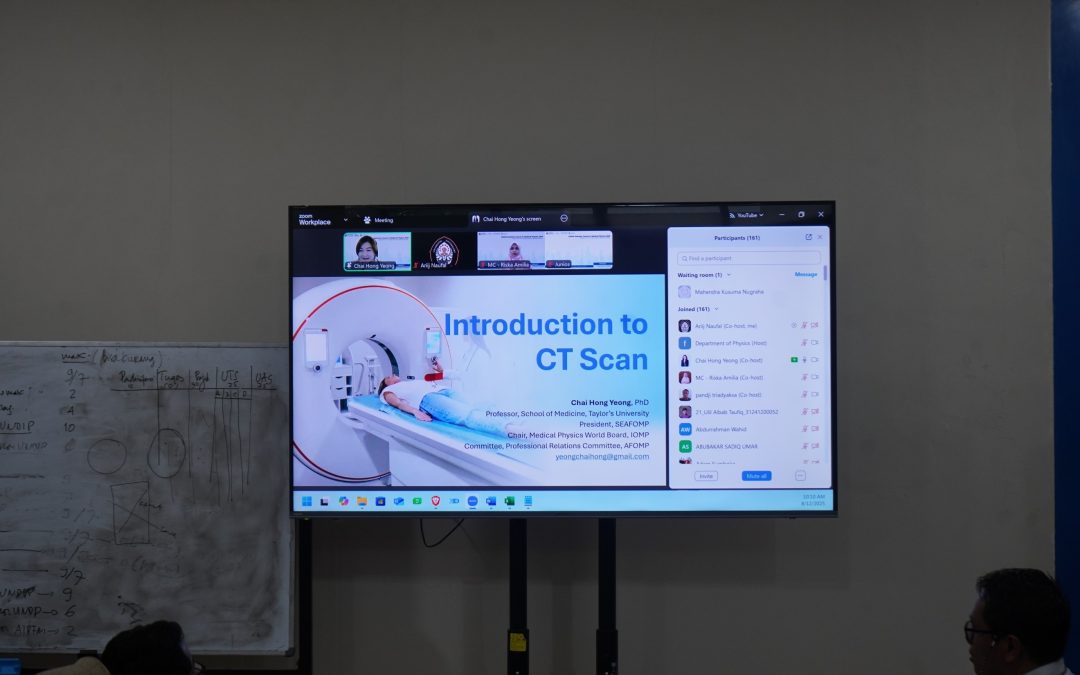The Department of Physics, Faculty of Science and Mathematics, Universitas Diponegoro (FSM UNDIP), proudly organized the Summer Course in Medical Physics 2025 with the theme “IndoQCT and IndoseCT for CT Image Quality and Dosimetry Measurements.” The program, held from August 12 to 21, 2025, was attended by more than 480 participants from 33 countries: Algeria, Bangladesh, Brazil, Cambodia, Egypt, Ghana, India, Indonesia, Iraq, Jordan, Kenya, Lesotho, Malaysia, Maldives, Mauritania, Morocco, Myanmar, Nepal, Nigeria, Oman, Pakistan, Papua New Guinea, Peru, Philippines, Saudi Arabia, Senegal, Sri Lanka, Sudan, Syria, Thailand, Vanuatu, and Yemen.
In general, the summer course participants consisted of practitioners, academics, Indonesian students, and 58 international students from 17 countries. Despite differences in time zones, participants enthusiastically joined the program virtually through Zoom and YouTube Live. In addition to the online sessions, participants also attended the summer course onsite at the Department of Physics, Universitas Diponegoro.
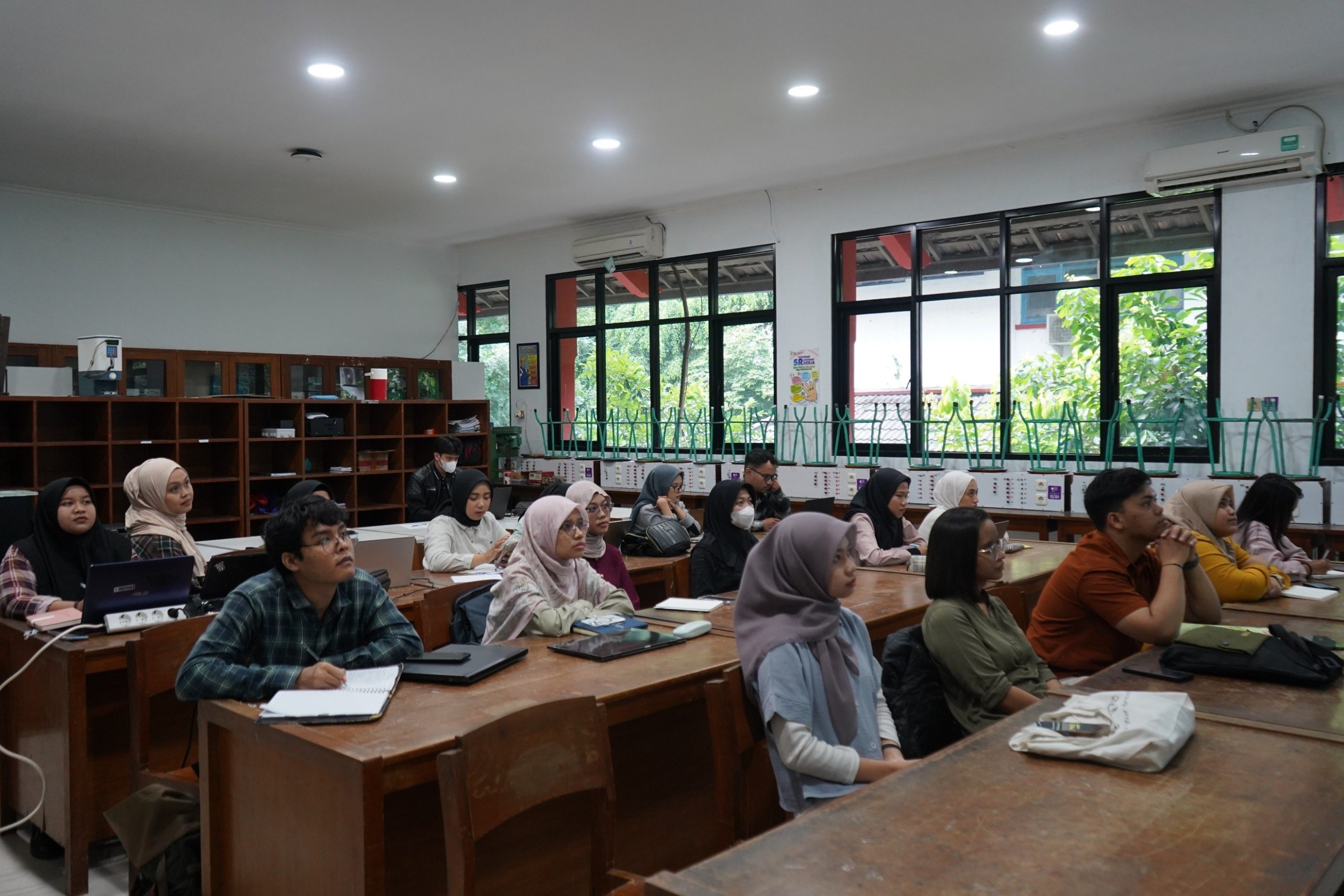
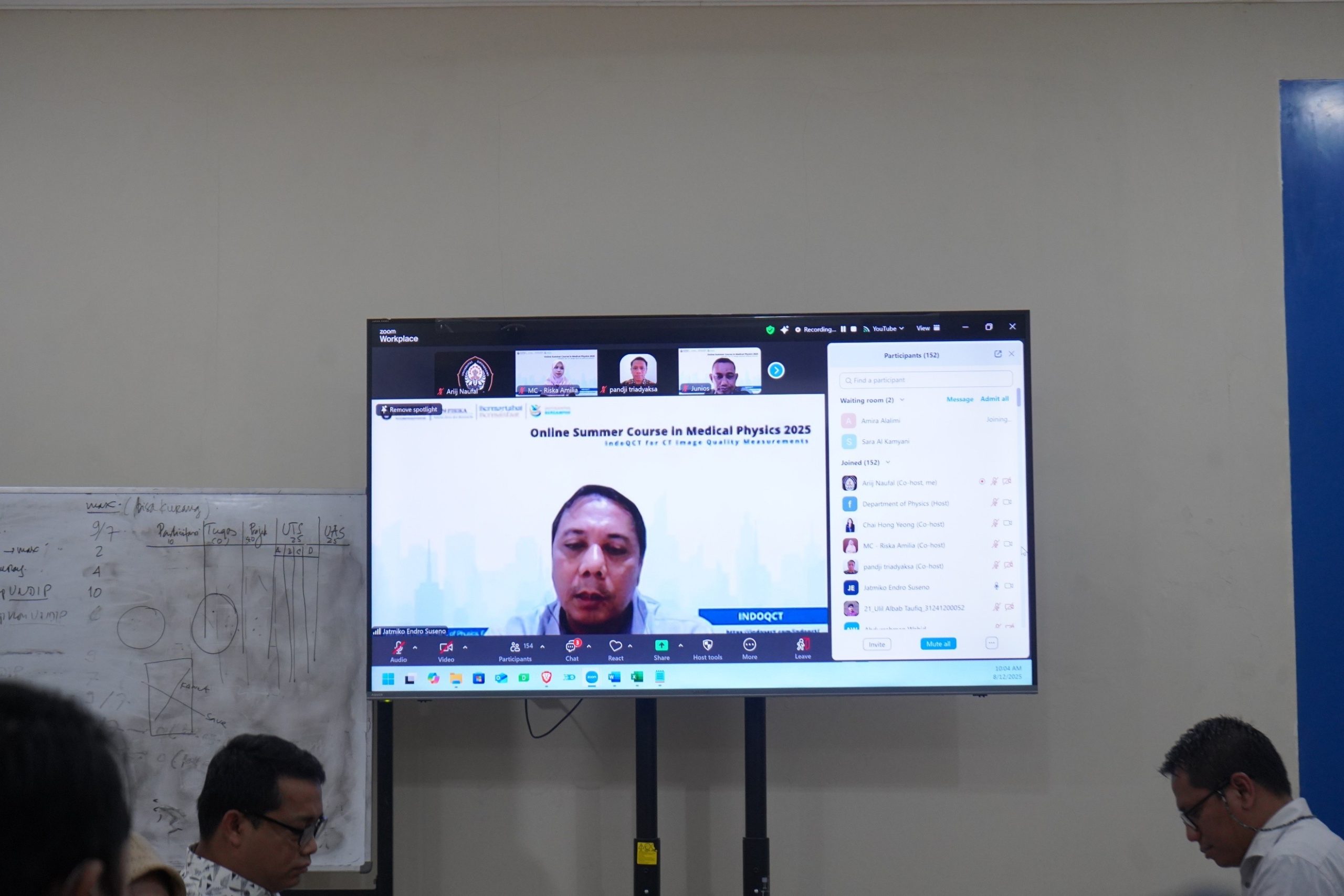
The event was opened with remarks from the Secretary of the Department of Physics, Jatmiko Endro Suseno, S.Si., M.Si., Ph.D., F.Med., who expressed appreciation to the attendees. The Chairperson of the Committee, Dr. Pandji Triadyaksa, S.Si., M.Sc., F.Med., in his opening report, thanked all the participants for their active involvement in making the event a success. During the course, participants were presented with various materials by international experts in medical physics, including Prof. Dr. Yeong Chai Hong (Taylor’s University, Malaysia), Prof. Dr. Kosuke Matsubara (Kanazawa University, Japan), Dr. Choirul Anam (Diponegoro University, Indonesia), Assoc. Prof. Dr. Noor Diyana Osman (Universiti Sains Malaysia, Malaysia), Prof. Dr. Wahyu Setia Budi (Diponegoro University, Indonesia, and Ariij Naufal, M.Si (Diponegoro University, Indonesia).
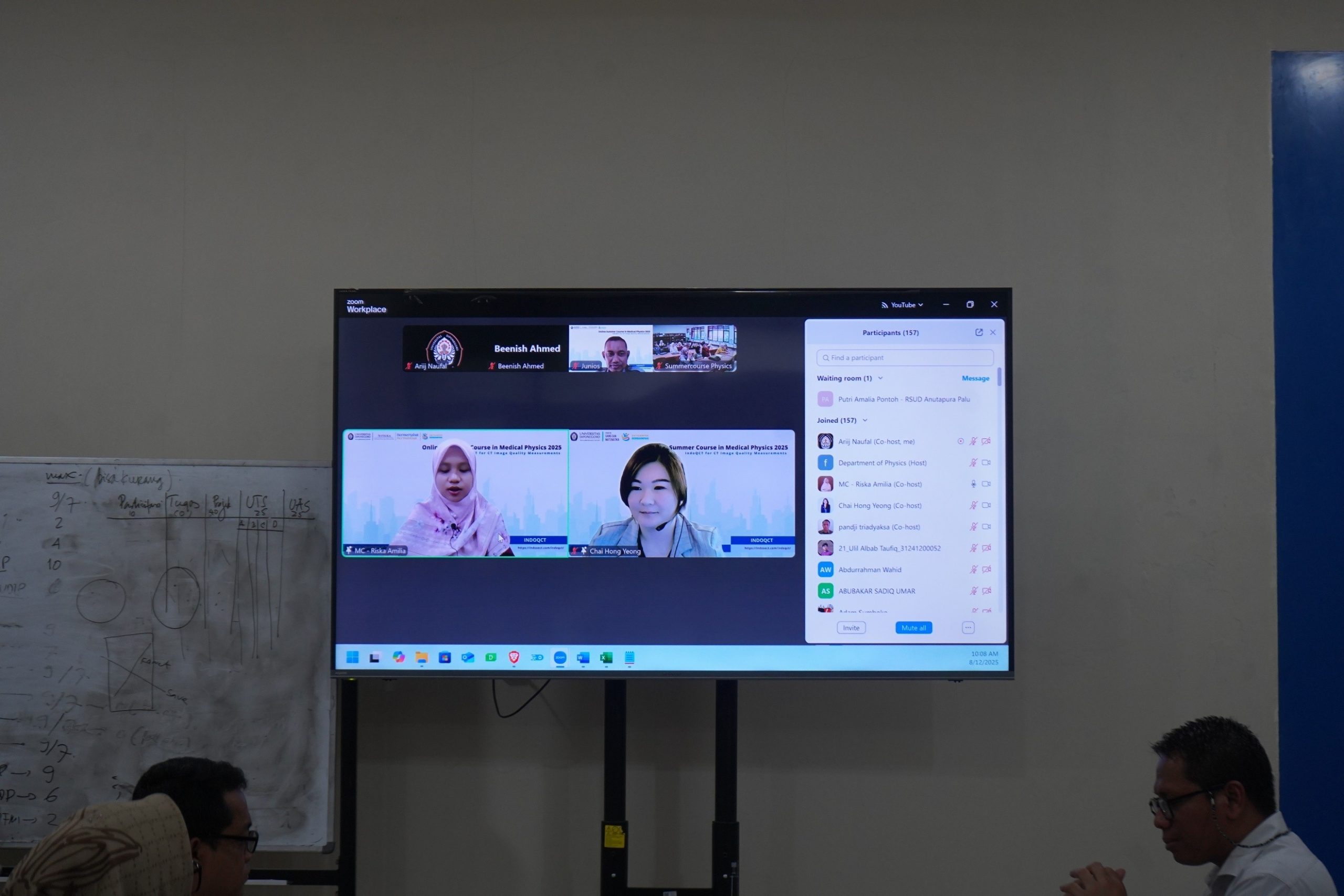
Fourteen lecture sessions were delivered over a total of 1,400 minutes, covering various key topics in medical physics especially on CT image quality. The program also provided participants with opportunities to deepen their knowledge in programming, noise measurement, spatial resolution, and low-contrast measurement—all of which are highly relevant to current developments in medical technology.
At the end of the summer course, a post-evaluation test was administered to assess the participants’ understanding of the lecture materials. The results showed that the majority of participants successfully completed the test with good scores, serving as an indicator of the success of this summer course.
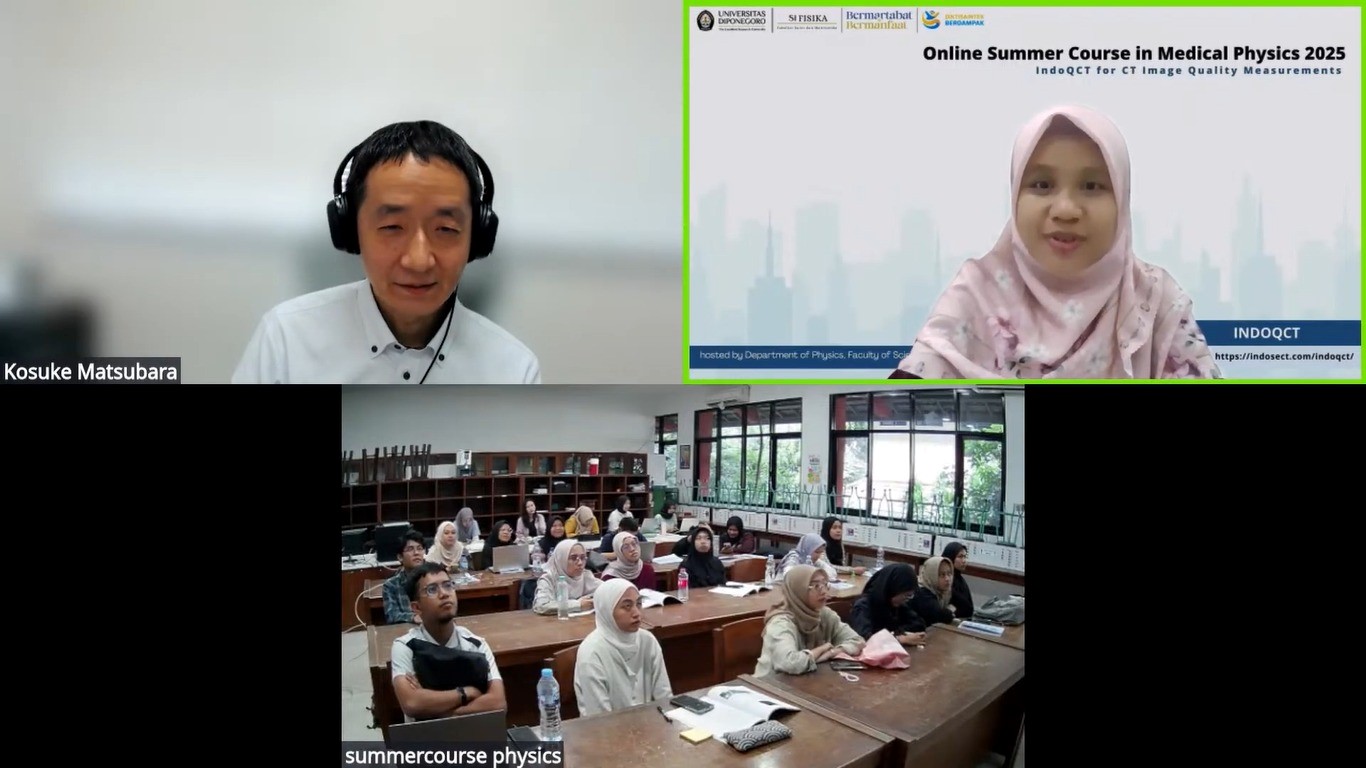
In conclusion, FSM UNDIP expresses its gratitude to all the participants and parties who supported the smooth running of this event. It is hoped that this activity will strengthen international collaboration in the field of medical physics and make a significant contribution to the development of science and health technology in the future.

